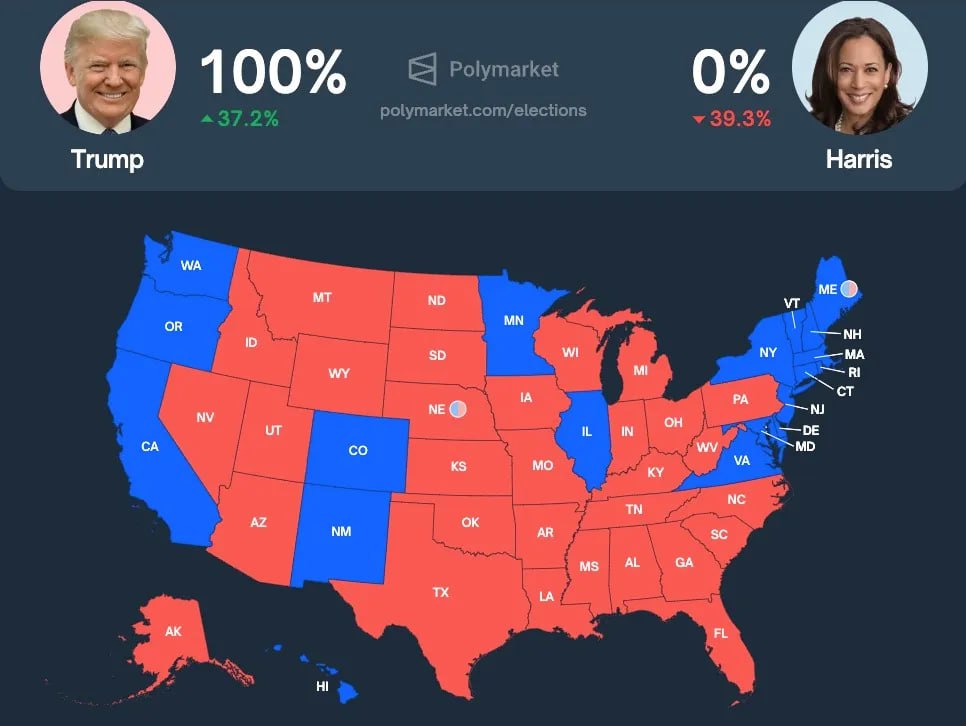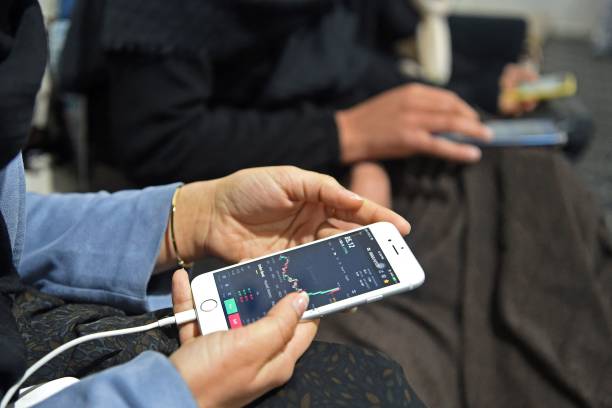
The FBI recently executed a search at Polymarket CEO Shayne Coplan’s home, seizing his phone and other electronics. The U.S. Department of Justice is investigating Polymarket for allegedly allowing U.S. users to place bets on the presidential election outcome—a practice considered illegal.
While the FBI confirmed it acted under a court warrant, no further details were disclosed. An anonymous Polymarket representative suggested the raid might be politically motivated, noting Polymarket’s predictions showed favorable odds for Donald Trump, diverging from traditional public polling.
FBI Conducts Search at Polymarket CEO’s Residence Amid Legal Investigationo
In a significant development that has raised questions about the intersection of online betting, politics, and legal boundaries, the Federal Bureau of Investigation (FBI) recently executed a search warrant at the residence of Shayne Coplan, the CEO of Polymarket. The search, which occurred in early November 2024, resulted in the seizure of Coplan’s phone and other electronic devices. The raid is part of a broader investigation launched by the U.S. Department of Justice (DOJ) into Polymarket’s alleged involvement in facilitating illegal betting activities, specifically related to U.S. presidential election outcomes.
Polymarket, a decentralized prediction market platform, allows users to place bets on the likelihood of future events. The company has gained considerable attention in recent years for offering markets on political events, including U.S. elections, as well as global affairs, sports, and even cultural events. However, it is the platform’s involvement in betting on the presidential election that has attracted the scrutiny of the U.S. government.
Background: The Alleged Violation of U.S. Betting Laws

The core of the DOJ’s investigation stems from allegations that Polymarket allowed U.S.-based users to participate in prediction markets related to the outcome of the 2024 presidential election, a practice which, according to federal law, is considered illegal. While online prediction markets and betting platforms are common in many parts of the world, U.S. federal law prohibits the offering of such betting services for political events, particularly those tied to elections.
In the U.S., the Federal Election Commission (FEC) has specific regulations that govern betting on political events. These rules stem from the idea that betting markets can influence or manipulate public opinion and voting behavior, potentially undermining the democratic process. While other types of gambling or prediction markets are legal in certain states under specific regulations, the practice of wagering on elections has been historically banned. This is due in part to concerns over election integrity and the potential for illegal manipulation of election outcomes.
Polymarket, based in the U.S., has been accused of circumventing these laws by allowing U.S. residents to participate in markets where they could wager on the likelihood of various political outcomes, including the 2024 presidential election. Although Polymarket initially operated as a global platform, it drew attention for its U.S.-based user base. The DOJ’s investigation centers on whether Polymarket violated the Wire Act, which prohibits interstate wagering on sports and other events, as well as the Unlawful Internet Gambling Enforcement Act (UIGEA), which restricts online gambling across state lines.
The FBI Raid and Seizure of Electronics
The FBI’s decision to execute a search warrant at Coplan’s home comes as part of a broader investigation into Polymarket’s business activities. In a statement, the FBI confirmed that it had acted under a court-authorized search warrant but declined to provide further details on the specifics of the investigation or the evidence seized during the raid. Federal authorities have remained tight-lipped about the direction of the investigation, leaving the public and the media to speculate about the potential legal ramifications for both Coplan and Polymarket as a whole.
Sources close to the investigation confirmed that during the raid, the FBI confiscated several of Coplan’s electronic devices, including his mobile phone and computers. These devices are believed to contain crucial data that could provide evidence of Polymarket’s involvement in unlawful betting activities and may shed light on the operations of the platform itself, including its user base, transaction histories, and its internal communications.
The search of Coplan’s residence has brought heightened scrutiny to Polymarket’s operations, with observers questioning whether the platform violated federal law by facilitating illegal gambling and election betting. Polymarket’s legal team has not yet issued a public statement regarding the investigation or the FBI raid, and it remains unclear how the company plans to respond to these legal challenges.
Polymarket’s Defense: Alleged Political Motivation

While the legal investigation into Polymarket’s activities is ongoing, the company’s representatives have suggested that the FBI raid may be politically motivated. An anonymous source within Polymarket hinted that the investigation could be related to the platform’s prediction markets, which have shown divergent odds compared to traditional public opinion polls. According to the representative, Polymarket’s markets suggested more favorable odds for former President Donald Trump’s success in the 2024 presidential election than those reflected by mainstream polling organizations.
This claim of political motivation raises questions about the underlying motives behind the investigation. The representative suggested that the U.S. government may be targeting Polymarket in an attempt to suppress alternative sources of political predictions that do not align with conventional narratives in the media or polling sectors. The suggestion that Polymarket’s forecasts diverged from mainstream polling has fueled speculation that the platform’s predictions, particularly those related to the 2024 election, could have influenced public opinion or political discourse in ways that authorities find troubling.
While these claims have not been substantiated, they highlight the broader debate over the legitimacy of prediction markets and the role they play in shaping political opinions. Polymarket’s platform has allowed users to speculate on a wide range of political outcomes, and the platform’s odds have often differed from those found in traditional opinion polling. This divergence has raised concerns about the potential influence of prediction markets on political campaigns, especially as betting on such outcomes can sometimes be seen as an alternative form of public opinion polling.
Legal and Ethical Questions Surrounding Prediction Markets
The legal and ethical questions surrounding platforms like Polymarket are multifaceted. On one hand, some argue that prediction markets offer a valuable tool for gathering real-time, market-driven information about political events, particularly those that may be difficult to measure through traditional polling methods. These platforms allow individuals to make predictions based on the collective intelligence of a wide range of participants, which some believe can provide more accurate forecasts than polls, particularly in situations where there is a limited sample size or bias in polling methods.
On the other hand, critics of prediction markets argue that these platforms introduce significant risks, particularly when it comes to the potential manipulation of political outcomes. By allowing large sums of money to be wagered on political events, critics argue that these markets could be exploited by individuals or groups with vested interests in influencing election results or swaying public opinion. This concern is compounded by the potential for foreign interference, as prediction markets can easily be accessed by individuals and organizations outside of the U.S., raising the possibility of foreign actors manipulating U.S. elections.
The U.S. government’s actions against Polymarket underscore the complexity of regulating these markets and the potential for legal conflicts to arise between innovation in the crypto and blockchain space and traditional legal frameworks. As decentralized platforms like Polymarket become more popular, regulators face the challenge of determining how to effectively monitor and control such markets without stifling innovation or infringing on users’ rights to engage in legal prediction activities.
What’s Next for Polymarket?
As the investigation into Polymarket continues, the company’s future remains uncertain. The legal outcomes of this case could have far-reaching implications for the broader prediction market industry, especially for decentralized platforms that rely on blockchain technology to operate in ways that bypass traditional regulatory frameworks. If Polymarket is found to have violated federal gambling laws, the company could face significant legal penalties, including fines and restrictions on its operations within the U.S. market.
Moreover, the potential fallout from the FBI raid could signal a broader crackdown on online prediction markets in the U.S., particularly those involved in political betting. For now, both Polymarket’s executives and its user base are left to await further developments in what promises to be a high-profile legal battle with important implications for the future of digital prediction markets and the intersection of politics and gambling in the United States.
As the situation unfolds, it is likely that legal scholars, tech industry leaders, and political analysts will continue to debate the merits of prediction markets like Polymarket, and whether they should be subject to stricter regulations or allowed to operate freely as innovative alternatives to traditional forms of political forecasting.

